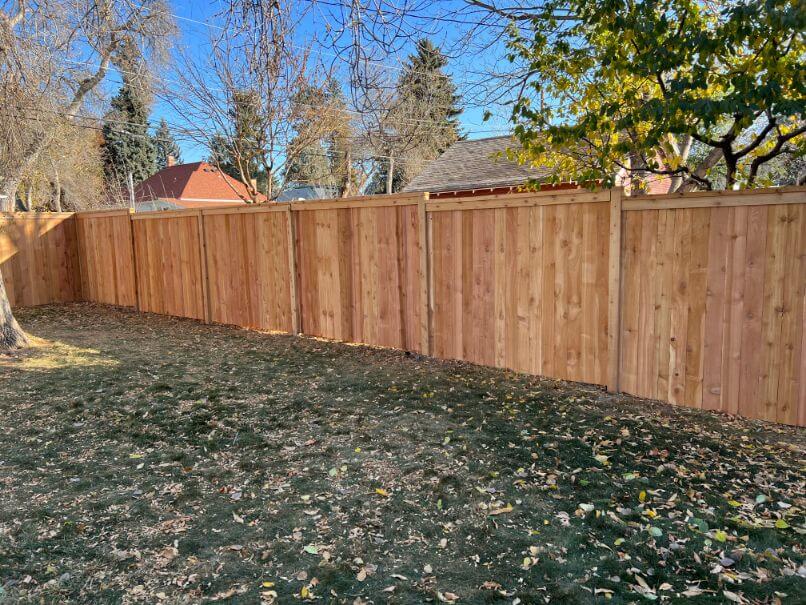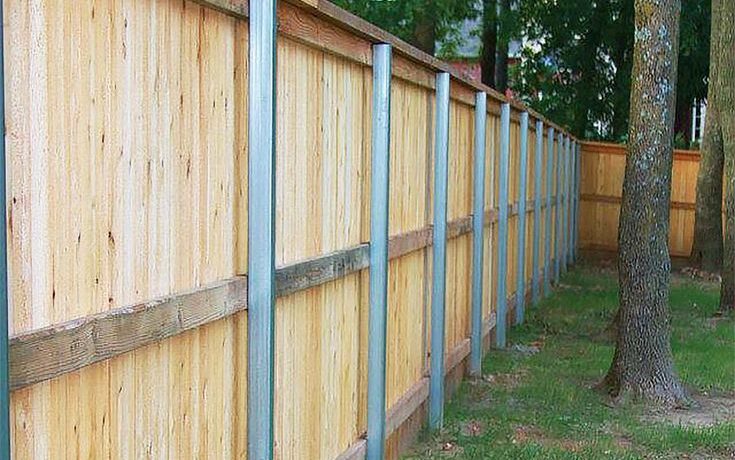All Categories
Featured
If you're considering mounting a fencing around your property, understanding the authorization requirements in your area is vital. While building a fencing could appear like an easy do it yourself project, a number of policies may govern its building depending on where you live. Falling short to obtain the correct authorizations can bring about penalties, charges, or perhaps needing to eliminate the fence entirely. In this overview, we'll damage down the various authorizations you may require to set up a fence and how to guarantee your project stays certified with neighborhood laws.
Why Are Permits Essential for Fencing Installment? Permits are called for to make certain that the fencing you build stick to neighborhood building regulations, zoning guidelines, and safety and security requirements. These licenses are in area to shield your residential or commercial property, the properties around you, and the setting. They make certain that the fencing will not obstruct utilities, website traffic flow, or produce risks for pedestrians. In addition, they aid keep the visual and structural integrity of your community.
![]()
Kinds Of Permits You Might Requirement. Building Permit. A structure permit is the most common need for mounting a fence. If your fence surpasses a particular elevation (generally around 6 feet), you might require to acquire a building permit.
Zoning Authorization. A zoning authorization makes certain that your fence abides with these laws. Your fencing could require to be established back a certain distance from pathways or home lines.
Homeowners Association (HOA) Authorization. If your property belongs to a property owners organization, you may need approval prior to installing a fencing. HOAs typically have strict regulations concerning the type, style, and products made use of for fencings to maintain an uniform appearance throughout the area. The HOA may need you to submit thorough strategies or request authorization prior to installment. Ensure you adhere to these guidelines to stay clear of prospective fines or penalties.
Specialized Permits. Sometimes, you may require specialized permits based upon the location of your residential property or the nature of your fence. As an example, if your residential or commercial property remains in a flooding zone, you might require additional licenses to guarantee that your fence does not block drain or water flow. If you plan to build a fence near an eco safeguarded area, you might need a special authorization to abide with ecological guidelines.
![]()
Energy Easements and Energy Firm Approvals. Prior to mounting a fence, you should inspect if your residential property has an easement. Building a fencing within an easement can interfere with energy upkeep or damages underground lines.
How to Identify Which Permits You Required. Inspect with Neighborhood Authorities. The primary step in establishing the authorizations called for is to contact your local building department or zoning office. They can offer particular information about what authorizations are necessary for your location. Numerous cities have on-line resources or websites where you can inspect the requirements or perhaps look for a license online.
Seek Advice From an Expert Fencing Service Provider. A regional fence professional is commonly knowledgeable about the permit process and local policies. They can assist you browse the requirements and make certain that your task is certified. Several contractors also take care of the authorization application procedure on your behalf, conserving you time and initiative.
Testimonial Your Area's HOA Standards. If you stay in a community governed by an HOA, see to it to evaluate their guidelines before requesting any type of authorizations. The HOA may need specific styles, materials, or height restrictions for fences within the area. Send your strategies to them for approval before proceeding.
![]()
Repercussions of Not Obtaining a Permit. Mounting a fencing without the called for permits can result in major consequences. You may encounter penalties, be purchased to remove the fence, or be called for to redo the installation to satisfy code demands. Additionally, selling your home might be complicated if the fencing doesn't satisfy neighborhood guidelines. Possible buyers may be reluctant to acquire a residential or commercial property with an unpermitted fence, specifically if it's in violation of zoning legislations.
Verdict. Prior to installing a fence on your home, make certain you recognize the local guidelines and obtain any necessary permits. Structure licenses, zoning permits, HOA approvals, and specialized allows all play a critical duty in ensuring that your fencing is secure, lawful, and certified.
Why Are Permits Essential for Fencing Installment? Permits are called for to make certain that the fencing you build stick to neighborhood building regulations, zoning guidelines, and safety and security requirements. These licenses are in area to shield your residential or commercial property, the properties around you, and the setting. They make certain that the fencing will not obstruct utilities, website traffic flow, or produce risks for pedestrians. In addition, they aid keep the visual and structural integrity of your community.

Kinds Of Permits You Might Requirement. Building Permit. A structure permit is the most common need for mounting a fence. If your fence surpasses a particular elevation (generally around 6 feet), you might require to acquire a building permit.
Zoning Authorization. A zoning authorization makes certain that your fence abides with these laws. Your fencing could require to be established back a certain distance from pathways or home lines.
Homeowners Association (HOA) Authorization. If your property belongs to a property owners organization, you may need approval prior to installing a fencing. HOAs typically have strict regulations concerning the type, style, and products made use of for fencings to maintain an uniform appearance throughout the area. The HOA may need you to submit thorough strategies or request authorization prior to installment. Ensure you adhere to these guidelines to stay clear of prospective fines or penalties.
Specialized Permits. Sometimes, you may require specialized permits based upon the location of your residential property or the nature of your fence. As an example, if your residential or commercial property remains in a flooding zone, you might require additional licenses to guarantee that your fence does not block drain or water flow. If you plan to build a fence near an eco safeguarded area, you might need a special authorization to abide with ecological guidelines.

Energy Easements and Energy Firm Approvals. Prior to mounting a fence, you should inspect if your residential property has an easement. Building a fencing within an easement can interfere with energy upkeep or damages underground lines.
How to Identify Which Permits You Required. Inspect with Neighborhood Authorities. The primary step in establishing the authorizations called for is to contact your local building department or zoning office. They can offer particular information about what authorizations are necessary for your location. Numerous cities have on-line resources or websites where you can inspect the requirements or perhaps look for a license online.
Seek Advice From an Expert Fencing Service Provider. A regional fence professional is commonly knowledgeable about the permit process and local policies. They can assist you browse the requirements and make certain that your task is certified. Several contractors also take care of the authorization application procedure on your behalf, conserving you time and initiative.
Testimonial Your Area's HOA Standards. If you stay in a community governed by an HOA, see to it to evaluate their guidelines before requesting any type of authorizations. The HOA may need specific styles, materials, or height restrictions for fences within the area. Send your strategies to them for approval before proceeding.

Repercussions of Not Obtaining a Permit. Mounting a fencing without the called for permits can result in major consequences. You may encounter penalties, be purchased to remove the fence, or be called for to redo the installation to satisfy code demands. Additionally, selling your home might be complicated if the fencing doesn't satisfy neighborhood guidelines. Possible buyers may be reluctant to acquire a residential or commercial property with an unpermitted fence, specifically if it's in violation of zoning legislations.
Verdict. Prior to installing a fence on your home, make certain you recognize the local guidelines and obtain any necessary permits. Structure licenses, zoning permits, HOA approvals, and specialized allows all play a critical duty in ensuring that your fencing is secure, lawful, and certified.
Latest Posts
What Allows Are Needed for Installing a Fence My Area?
Published Dec 18, 24
0 min read
Just How Much Does It Price to Install a Fence on a Property?
Published Dec 18, 24
0 min read
A Complete Guide to the Car Buying Process
Published Dec 18, 24
2 min read